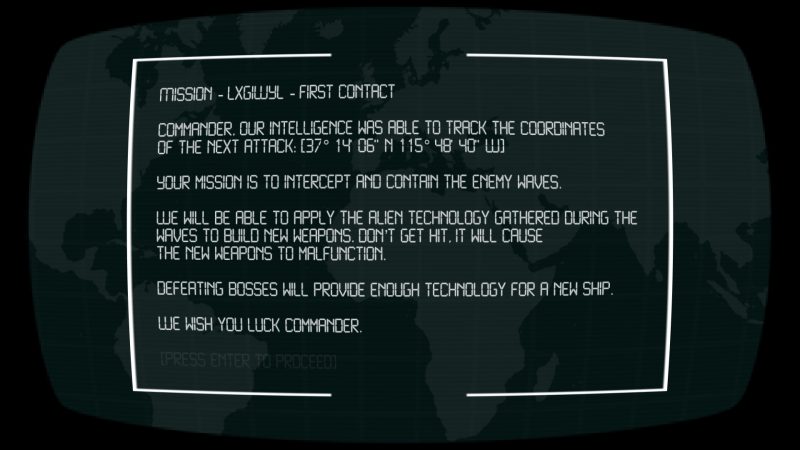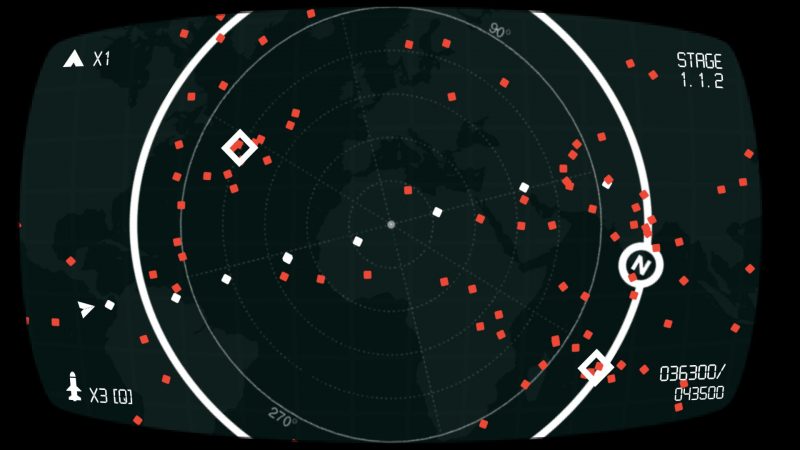A new take on classic bullet hell games; Radar Warfare breathes a bit of fresh air into the genre but it’s not without it’s problems. It’s still early in it’s life and it’s entirely possible these bumps will smooth themselves out.
The most glaring problem that Radar Warfare has is its notion of difficulty. It’s a surprisingly common issue in the bullet hell genre, we’ve all raged about what we considered a cheap loss, but few seem to actually understand what makes a game difficult but learnable. There’s a significant difference between a game is and what actually has a ‘false difficulty’. False difficulty will bring you down in one way or another, regardless of your skill, often by random spawns that don’t allow you to learn from your experiences. ‘Real’ difficulty teaches you the game through consecutive attempts, and allows your skill to grow with each attempt.
Radar Warfare suffers from this false difficulty, missing the design purpose of challenge in bullet hell titles and introducing the dire combination of 360° combat in a very limited playing field, randomly spawning enemies and frequently respawning you right beside them; making a near immediate death an all too common possibility.
It leaves your deaths feeling far too cheap and your victories hollow at best. Combine this with the keyboard-only controls and sluggish movement and it creates a perpetual feeling of frustration that’s not rewarding to overcome. The colloquial ‘get good’ is thrown out right on Radar Warfare’s steam page, however it misses the point that skill is required, instead focusing on a lower skill ceiling that relies too heavily on luck.
What might be considered a minor issue for some is that Radar Warfare also suffers from a rather plain visual aesthetic. If they tightened up the gameplay I feel like this would become moot as the core principal of a good bullet hell title is intense gameplay. In a way, the simplistic visuals are preferable in a bullet hell, as it can sometimes be too distracting and difficult to keep track of your position in a genre where keeping track of your position is your number one priority. In fact, it’s charming with the Atari-like, albeit modern look.
As mentioned before the game is in its early stages and the developer comes from a background of developing mobile apps. They often rely on difficult mechanics to artificially extend gameplay, much like the coin gobbling arcade titles that inspired the original bullet hells, so I’m hopeful that there’s not only room to grow but a willingness on the part of the developer to grow as a game creator as well.



